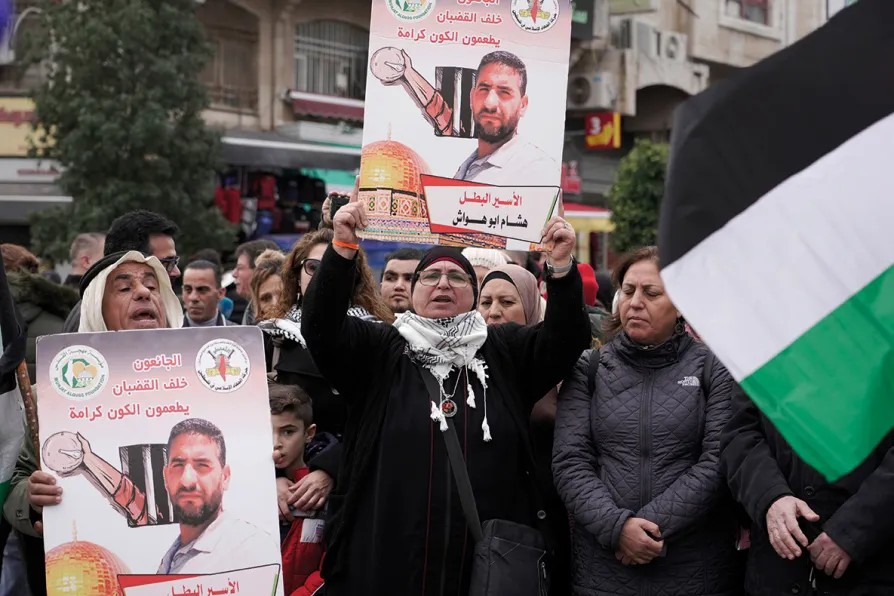Following a fratricidal period for the left with Morales and Arce at loggerheads, right-wing, anti-MAS candidates obtained over 85 per cent of the votes cast in the latest general election, writes FRANCISCO DOMINGUEZ

 Palestinians attend a protest in solidarity with Hisham Abu Hawash January 2 2022. The Arabic reads: ‘Those starving behind bars feed the universe with dignity’
Palestinians attend a protest in solidarity with Hisham Abu Hawash January 2 2022. The Arabic reads: ‘Those starving behind bars feed the universe with dignity’
AS soon as media reports emerged regarding a deal between Palestinian prisoner Hisham Abu Hawash and the Israeli prison authorities, Israeli extremists, led by Knesset member Itamar Ben-Gvir, angrily raided the Assaf Harofeh Hospital where Abu Hawash was being held.
A Palestinian political activist, Abu Hawash, 41, is a father of five. He was arrested by the Israeli army from his home in the town of Dura near Al-Khalil (Hebron) in October 2020. For the last consecutive 141 days, prior to the agreement, Abu Hawash has staged a hunger strike, which will go down in the history of Palestinian resistance as one of the longest and arguably, most consequential.
Ben-Gvir and other right-wing Israelis were enraged by the government's decision to release Abu Hawash on February 26, at a time that the Naftali Bennet coalition is labouring to demonstrate its pro-Jewish settlers’ credentials and overall hard-line policies against any form of Palestinian resistance. Indeed, for many Israelis, any such compromise is considered an outright defeat for Israel and an unquestionable victory for Palestinians.

With foreign media banned from Gaza, Palestinians themselves have reversed most of zionism’s century-long propaganda gains in just two years — this is why Israel has killed 270 journalists since October 2023, explains RAMZY BAROUD

Gaza’s collective sumud has proven more powerful than one of the world’s best-equipped militaries, but the change in international attitudes isn’t happening fast enough to save a starving population from Western-backed genocide, argues RAMZY BAROUD

RAMZY BAROUD asks why it has taken so long for even left-wing voices in the West to call out what Israel is doing

RAMZY BAROUD explains why the world can no longer ignore Palestine














